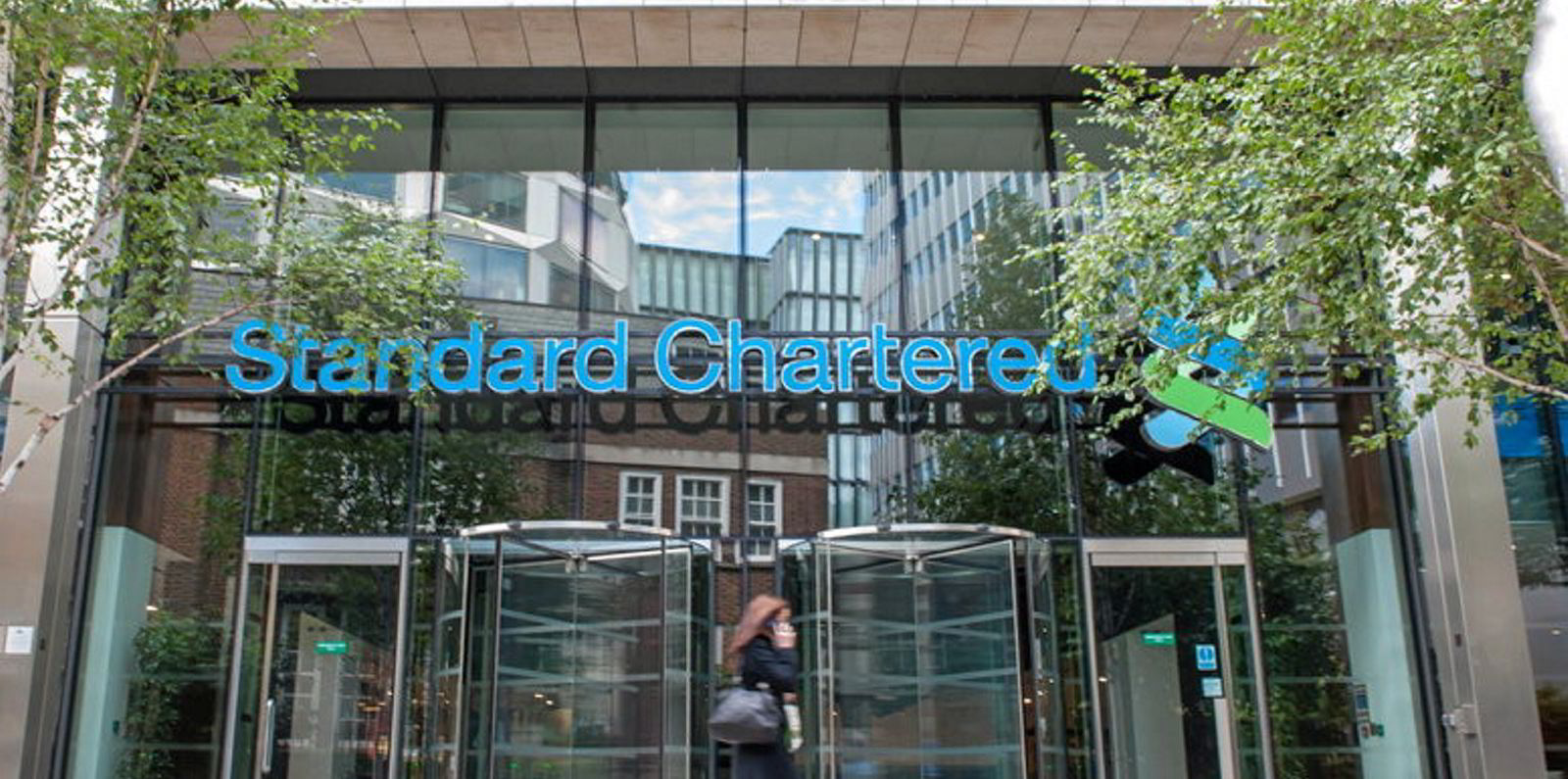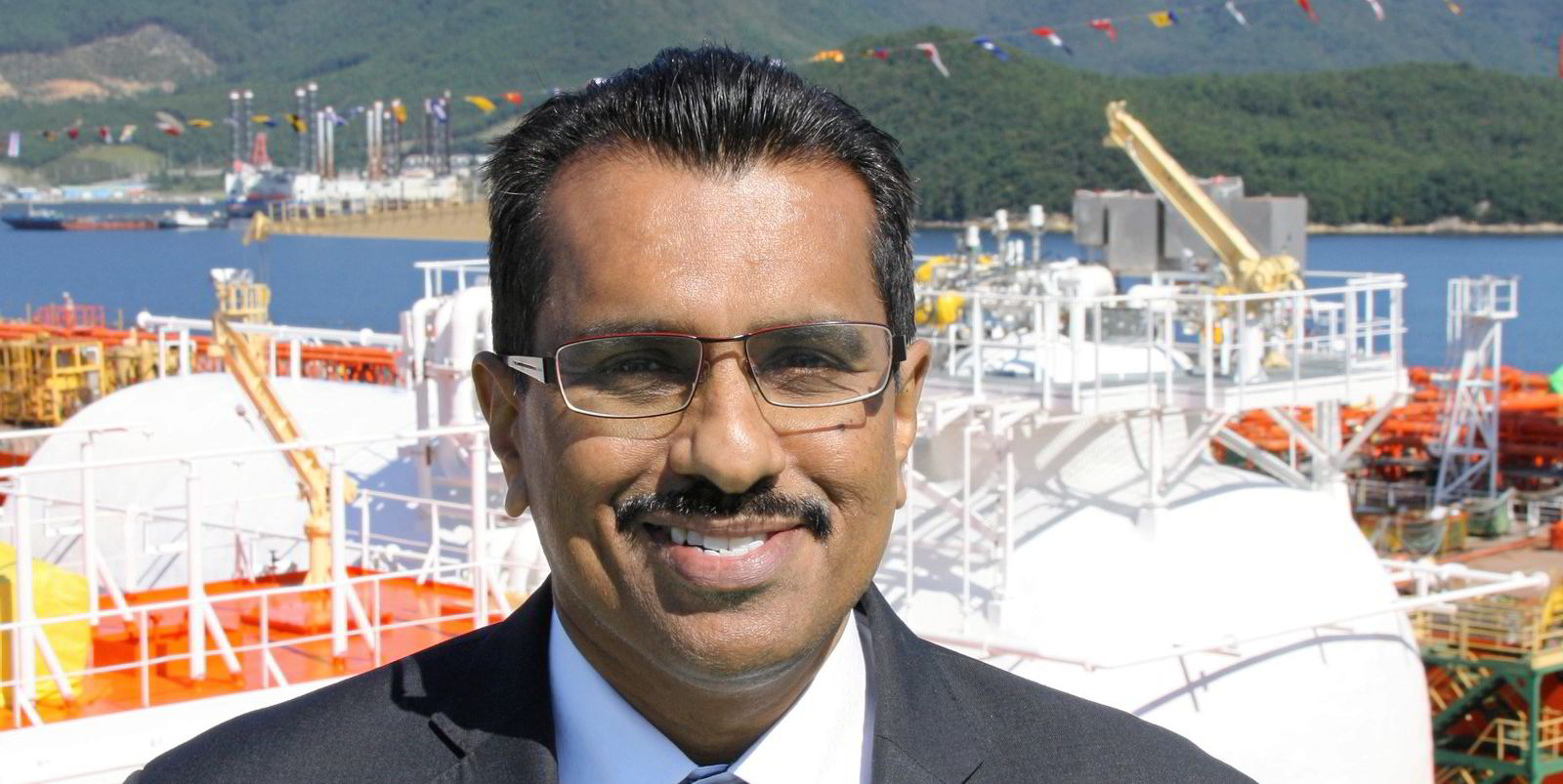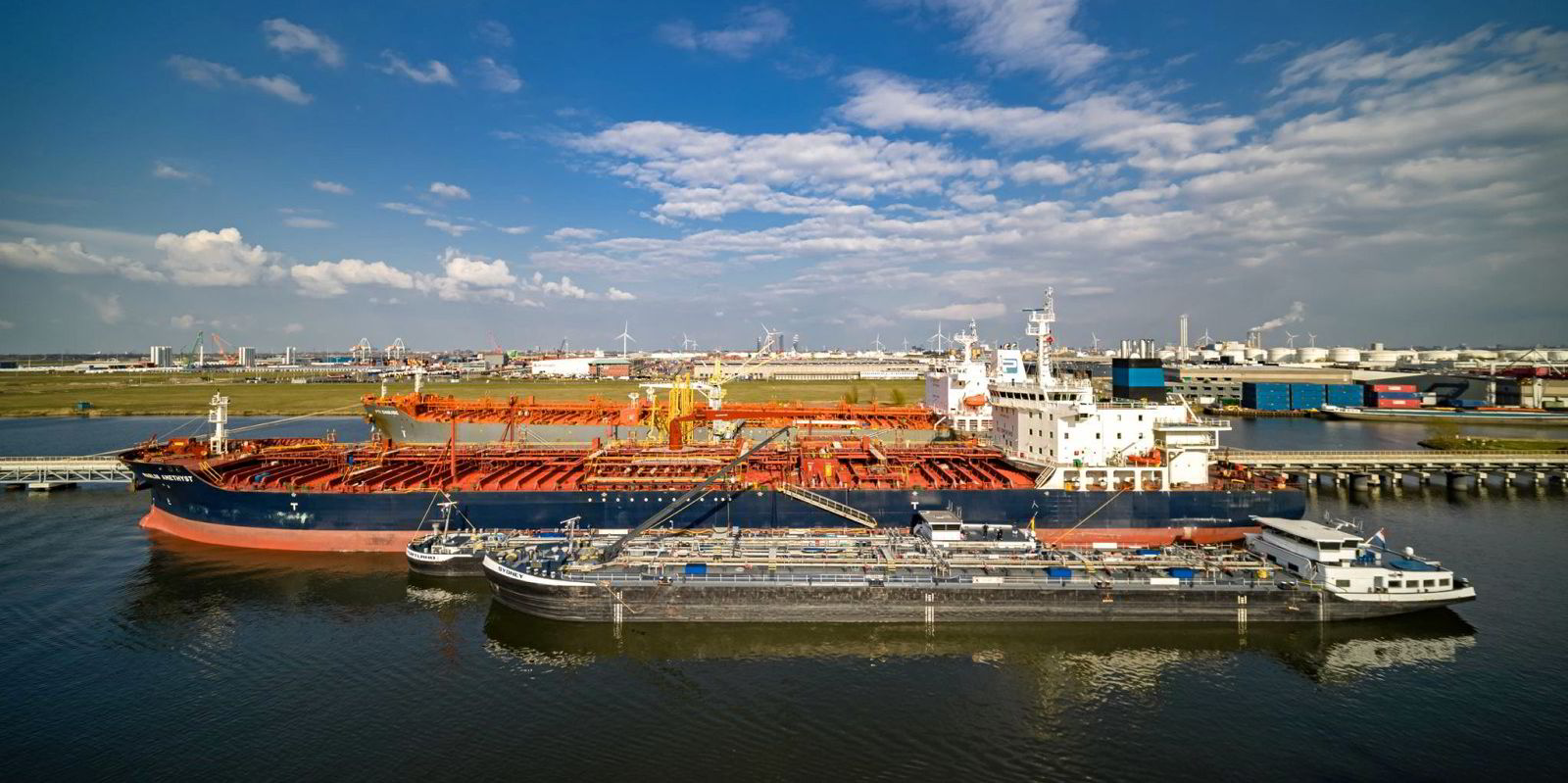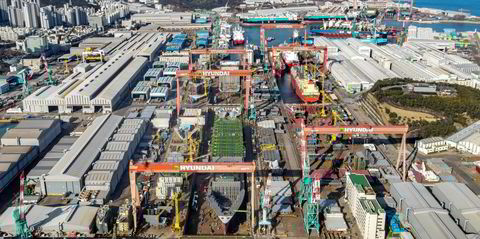Standard Chartered believes up to $1.5trn of new investments are needed in alternative fuels and efficiency measures to keep shipping on track to hit emission reduction targets.
The Singapore and London-based lender's director, Roger Charles, told a Marine Money conference in Singapore that sustainability-linked loans will emerge at the forefront of shipping finance over the next three decades as the sector tries to halve its carbon output.
Charles forecast that about 87% of the cash will go on land-based initiatives like developing low or zero-carbon fuels.
The rest will be directly ship-related, S&P Global reported.
These investments will relate to technology efficiency and operational improvements including speed management, Charles said.
$3trn on new ships?
Shipping economist Martin Stopford grabbed the headlines earlier this month when he said the industry needs to spend up to $3.4trn on new vessels to meet the IMO's emissions reduction targets by 2050.
Stopford's figures showed $518bn will have to go on containerships, $509bn on bulk carriers, $395bn on gas carriers and $357bn on cruiseships.
A $214bn investment in tankers and $319bn in offshore vessels is required, as their fleet expansions are expected to be curbed by peaking oil demand.
But $919bn is needed to decarbonise small cargo and non-cargo vessels, such as tugs, fishing boats and mini bulkers operating in coastal waters.
$350bn by 2030
Standard Chartered estimates that $350bn will have to be committed by 2030 alone to meet targets.
Earlier in April, the bank finally joined the Poseidon Principles framework for green financing, nearly two years after they were launched. The principles were launched in June 2019 in a bid to help the sector reduce carbon emissions by aligning banking portfolios to the International Maritime Organization's targets.
Charles said the infrastructure to reduce carbon in shipping does not yet exist and therefore massive additional capital is needed to develop it.
He believes LNG, biofuels and operational efficiency in ships can help reduce emissions, but the gains will be limited due to problems with the loss of methane in supply chains, for example.







